Travel documents required from EU citizens when travelling to the UK from 1 October 2021
Share this page


European ID Cards: Changes at the UK Border from 1st October 2021

It is estimated that almost a third of EU, EEA and Swiss nationals currently travel to the UK using national identity cards, rather than passports. However, on 01 October 2021 , the rules governing entry to the UK with an EU, EEA or Swiss national identity card will change.
Up to and including Thursday 30 September 2021, all EU, EEA and Swiss citizens can use their national identity card to enter the UK. However, from Friday 01 October 2021, this will no longer be possible for most EU, EEA and Swiss citizens. Instead, a valid passport must be shown at the UK border. The passport must be valid for the entire duration of the traveller’s stay in the UK.
While this change will apply to the majority of EU, EEA and Swiss citizens, some exceptions apply. Certain EU, EEA and Swiss citizens may continue to enter the UK using only their national identity cards, up until at least 31 December 2025 . This will only apply to you if you fall into one of the categories below:
You have settled or pre-settled status under the EU Settlement Scheme
If you have been granted either pre-settled status or settled status under the EU Settlement Scheme, you can enter the UK by showing the identity document linked to your online status. This could be your passport, or your national identity card.
Before you travel, you should ensure that you update your online account with all valid travel documents (such as passports or national identity cards) that you hold and intend to use for travel, to avoid any unnecessary delays at the border. You can check, or change, the identity document linked to your status under the EU Settlement Scheme on the GOV.UK website .
You have applied to the EU Settlement Scheme, but not yet received a decision
On 25 August 2021, the UK government updated its guidance to confirm that EU, EEA and Swiss citizens who applied to the EU Settlement Scheme before the 30 June 2021 deadline, but have not yet received a decision, can continue to use their national identity card to enter the UK after 01 October 2021, while they are waiting for the decision on their application.
If your application is pending, UK border guards will be able to check your pending status automatically at the border using the documents registered, so your travel in and out of the country will not be affected while your application is being processed.
You have an EU Settlement Scheme Family Permit
If you have an EU Settlement Scheme Family Permit , you may continue to enter the UK after 01 October 2021 by showing an EU, EEA or Swiss national ID card.
You have a Frontier Worker Permit
If you have a permit under the Frontier Worker Permit Scheme , you may continue to enter the UK after 01 October 2021 by showing an EU, EEA or Swiss national ID card.
You are an S2 Healthcare Visitor
If you have been authorised to receive planned healthcare in the UK under the ‘S2 arrangement’ , or you’re accompanying or joining someone who is, you may continue to enter the UK after 01 October 2021 by showing an EU, EEA or Swiss national ID card.
You are a Swiss national and have a Service Provider from Switzerland visa
If you work for a company based in Switzerland and have a Service Providers from Switzerland visa, you may continue to enter the UK after 01 October 2021 by showing a Swiss national ID card.
British and Irish citizens
If you are a British citizen and have a Gibraltar identity card, you can continue to use this to travel to the UK after 01 October 2021.
If you are an Irish citizen and have a passport card, you can continue to use this to travel to the UK after 01 October 2021.
Non-EEA citizens
Please note that if you’re a non-EEA family member of an EU, EEA or Swiss citizen, you will need to show your valid national passport. You cannot use an Article 10 or Article 20 residence card issued by an EEA member state to enter the UK.
If you are a non-EEA citizen, you must travel with a valid national passport.
Other Documents That EU or Swiss Visitors May Need to Show at the UK Border
Whether you are entering the UK with a national identity card or a passport, there may be other documents that you will need in order to enter the UK as a Visitor .
Contact Our Immigration Barristers
EU, EEA or Swiss nationals who wish to visit the UK and wish to discuss their visit with one of our immigration barristers should contact us on 0203 617 9173 or complete our enquiry form below.
SEE HOW OUR IMMIGRATION BARRISTERS CAN HELP YOU
To arrange an initial consultation meeting, call our immigration barristers on 0203 617 9173 or fill out the form below.
Want to keep up to date with the latest immigration news, events and legal developments?
Sign up and receive our latest expert briefings, case-law alerts and immigration guides. We’ve got our finger on the pulse, making sure you’re up-to-date.
DOWNLOAD OUR BROCHURE
Expert advice & representation from immigration barristers that you can rely on..
Read the 600+ five out of five star Google reviews of our immigration barristers.


- News & Blog
Can I travel to the UK with my national ID card? Change from 1 October 2021

Please note that your passport must be valid for the entirety of your stay in the UK.
There are exceptions which, if they apply, will allow certain EU, EEA and Swiss nationals to continue to use their national ID card to travel to the UK up until at least 31 December 2025. In order for this to apply, you must fall under one of the following categories listed below:
You hold Settled or Pre-Settled Status under the EU Settlement Scheme
If you hold Settled or Pre-Settled status under the EU Settlement Scheme, you can enter the UK using the ID document linked to your status (i.e. your passport or ID card). This must be the same ID document that you used to apply for status under the EU Settlement Scheme.
To avoid delays at the border, if you obtain a new ID document, we strongly advise that you update your ID document on the online account before you travel to the UK so that it matches the ID document which you will use when entering the UK. You can update your information under the EU Settlement Scheme .
You have applied to the EU Settlement Scheme before the 30 June 2021 deadline but have not yet received a decision
If you have made an application under the EU Settlement Scheme before the 30th of June 2021 deadline, but have not yet received a decision, you may continue to use your national ID card when travelling to the UK after 1 October 2021, whilst your application remains pending. Please note that you may also continue to travel during this period.
You have been issued with an EU Settlement Scheme Family Permit
If you hold a family permit under the EU Settlement Scheme, you may enter the UK using your EU, EEA, or Swiss national ID card after 1 October 2021. Once you enter the UK, you will be able to make an application under the EU Settlement Scheme to remain in the UK after the expiry of your family permit. Gherson Immigration team can advise and assist on applications made under the Home Office’s EU Settlement Scheme. Should you require any assistance, please do not hesitate to contact us.
You have a frontier worker permit
If you hold a Frontier Worker Permit under the Frontier Worker Permit Scheme, you may also continue to travel to the UK using your EU, EEA or Swiss national ID card after 1 October 2021.
If you are an S2 Healthcare Visitor
If you are entering the UK as an S2 Healthcare Visitor, i.e. you have been authorised to receive planned healthcare in the UK under the ‘S2 arrangement’ or you are joining someone who is an S2 Healthcare Visitor, you may continue to use your EU, EEA or Swiss national ID card when entering the UK after 1 October 2021.
If you are a Swiss national and you hold a Service Provider from Switzerland visa
Those with status under this category may also continue to use their Swiss national ID card for travel to the UK after 1 October 2021.
Additionally, British nationals may continue to use a Gibraltar identity card when entering the UK. Irish citizens can also continue to use a passport card for travel to the UK beyond the 1st of October 2021.
How Gherson can assist
Gherson has extensive experience in all aspects of UK immigration law . If you have any queries relating to the blogs published or are interested in talking to us about your specific circumstances, please do not hesitate to contact us for advice, send us an e-mail , or alternatively, follow us on Twitter , Facebook , or LinkedIn to stay-up-to-date.
The information in this blog is for general information purposes only and does not purport to be comprehensive or to provide legal advice. Whilst every effort is made to ensure the information and law is current as of the date of publication it should be stressed that, due to the passage of time, this does not necessarily reflect the present legal position. Gherson accepts no responsibility for loss which may arise from accessing or reliance on information contained in this blog. For formal advice on the current law please don’t hesitate to contact Gherson. Legal advice is only provided pursuant to a written agreement, identified as such, and signed by the client and by or on behalf of Gherson.
© Gherson 2021
- EMAIL: [email protected]
- PHONE NUMBER: +44 20 7724 4488
Stay up to date with notifications from The Independent
Notifications can be managed in browser preferences.
UK Edition Change
- UK Politics
- News Videos
- Paris 2024 Olympics
- Rugby Union
- Sport Videos
- John Rentoul
- Mary Dejevsky
- Andrew Grice
- Sean O’Grady
- Photography
- Theatre & Dance
- Culture Videos
- Food & Drink
- Health & Families
- Royal Family
- Electric Vehicles
- Car Insurance deals
- Lifestyle Videos
- UK Hotel Reviews
- News & Advice
- Simon Calder
- Australia & New Zealand
- South America
- C. America & Caribbean
- Middle East
- Politics Explained
- News Analysis
- Today’s Edition
- Home & Garden
- Broadband deals
- Fashion & Beauty
- Travel & Outdoors
- Sports & Fitness
- Sustainable Living
- Climate Videos
- Solar Panels
- Behind The Headlines
- On The Ground
- Decomplicated
- You Ask The Questions
- Binge Watch
- Travel Smart
- Watch on your TV
- Crosswords & Puzzles
- Most Commented
- Newsletters
- Ask Me Anything
- Virtual Events
- Betting Sites
- Online Casinos
- Wine Offers
Thank you for registering
Please refresh the page or navigate to another page on the site to be automatically logged in Please refresh your browser to be logged in
Airlines must allow European visitors to travel to UK on ID cards, says watchdog
Citizens of schengen zone countries have a right to travel using id cards, airlines have been reminded, article bookmarked.
Find your bookmarks in your Independent Premium section, under my profile
![travelling with id card uk Passengers queue at Roissy Charles de Gaulle airport, near Paris [file photo]](https://static.independent.co.uk/2021/07/08/13/GettyImages-1232514823.jpg)
Sign up to Simon Calder’s free travel email for expert advice and money-saving discounts
Get simon calder’s travel email, thanks for signing up to the simon calder’s travel email.
Some airlines are unnecessarily stopping European travellers from travelling to the UK due to a misunderstanding of post-Brexit travel rules, a watchdog has said.
In several cases, airlines have demanded that travellers show proof of British residency under the EU Settlement Scheme (EUSS) and have refused to accept valid European national ID cards for travel, according to the Independent Monitoring Authority (IMA).
The rejected customers have included EU citizens, as well as those from Iceland, Liechtenstein, Norway, and Switzerland – non-EU countries that are in Europe’s Schengen Area.
These European citizens’ right to use their national ID cards for travel is protected by the withdrawal agreement agreed between the UK and EU during Brexit negotiations.
The IMA has written an open letter to all airlines to remind them of the Home Office’s guidance, which states that European citizens can use either their national ID cards or passports to travel to the UK.
Pam Everett, IMA’s director of operational delivery, said: “As the summer holidays start in earnest, we are concerned that incorrect procedures followed by airline carriers will cause unnecessary stress, even resulting in families missing their holiday.
“We hope this letter to carriers will remind them to ensure their staff are aware of the guidance from the Home Office in relation to citizens’ entitlement to travel.
“We will continue to monitor the situation and remain in close contact with the Home Office about the EUSS and rights of entry to the UK.”
- Family holiday ruined as mum tripped up by Brexit passport rules
- More travel red tape next summer for Europe trips: Get ready for Etias and EES
- Boris Johnson says French staff shortages not Brexit to blame for Channel holidays misery
In its guidance, the Home Office says: “Carriers are not currently required to check an EU, EEA or Swiss citizen’s immigration status, or their entitlement to travel on a national identity card, when deciding whether to bring them to the UK.
“They only need to check that they have a valid passport or national identity card.”
The IMA is funded by – but independent from – the UK government.
It says it seeks to “protect the rights of EU and EEA EFTA citizens, and their family members, living in the UK and Gibraltar.”
Join our commenting forum
Join thought-provoking conversations, follow other Independent readers and see their replies
Subscribe to Independent Premium to bookmark this article
Want to bookmark your favourite articles and stories to read or reference later? Start your Independent Premium subscription today.
New to The Independent?
Or if you would prefer:
Want an ad-free experience?
Hi {{indy.fullName}}
- My Independent Premium
- Account details
- Help centre
Changes to Travelling To The UK
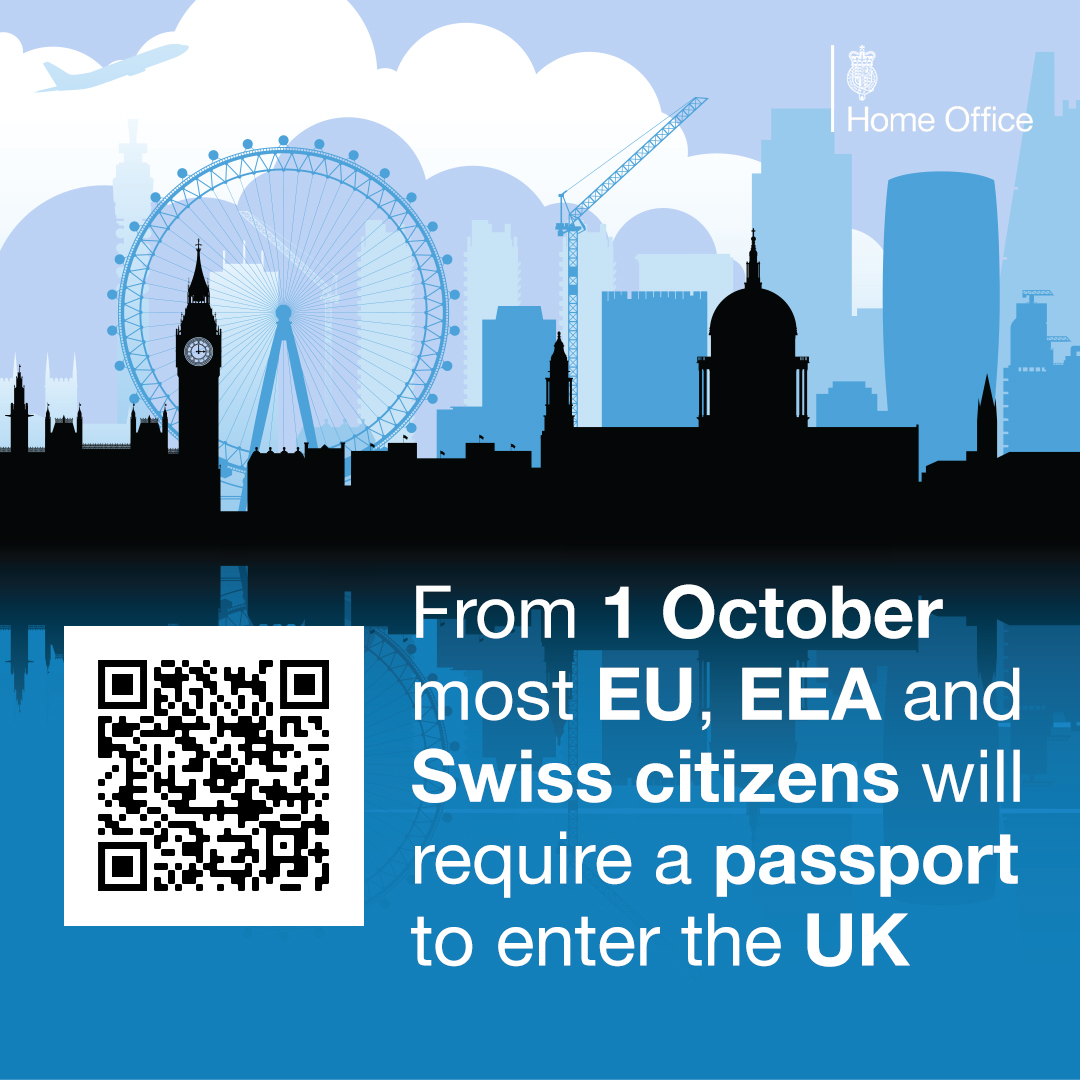
As part of the Government’s ambition to build back a safer, fairer and more prosperous UK, the use of National Identity (ID) cards as a valid travel document to enter the UK is being phased out.
This means that from 1 October 2021, most EU, EEA and Swiss nationals will need to use a valid passport to travel to the UK. ID cards will no longer be accepted as a valid travel document, and it will not be possible to enter the UK using them.
The changes won’t affect British and Irish nationals using Gibraltar ID cards and passport cards; they can continue to use these to travel to the UK as they do now.
The changes also will not affect EU, EEA and Swiss nationals who have applied to the EU Settlement Scheme by 30 June 2021 or otherwise have protected rights under the Citizens’ Rights Agreements.
(Click HERE to visit the GOV.UK web page)
EU, EEA and Swiss nationals in these exempt groups can still use their national ID cards to travel to the UK at least until 31 December 2025. They’ll also be able to use them after that date, if the cards meet the security standards set by the International Civil Aviation Organisation.
The phasing out of ID cards will help strengthen the security of our border and bring EU, EEA and Swiss nationals in line with rules for travellers across the world entering the UK.
What’s Changing
From 1 October 2021, most EU, EEA and Swiss citizens can only travel to the UK using a valid passport, unless they have:
- applied to the EU Settlement Scheme, or have an application pending
- or otherwise have protected rights under the Citizens’ Rights Agreements.
Until this date, European Union (EU), European Economic Area (EEA) and Swiss citizens can currently travel to the UK with a valid passport ora national identity (ID) card.
In 2019, just under 10 million* people used an ID card rather than a passport to book a flight to enter the UK. This equates to around a third of all EEA and Swiss air passengers.
The change from 1 October means an ID card will no longer be accepted for travel to the UK, unless the exemptions apply.
Anyone travelling to the UK on an invalid travel document is liable to be refused entry at the border.
Why It’s Changing
ID cards are amongst the leastsecure travel documentsand they are often usedby organised crime groups. Phasing these out will help to deter those who wouldabuse the system.
The end of free movement on 31 December 2020 means EU, EEAand Swiss citizensnow follow the same rules for entering the UKas travellers from the rest of theworld.
The removal of ID cards will strengthen our borders and pave the way for a future digitised border, delivering a more streamlined and seamless customer experience for travellers entering the UK.

To help you navigate the changes of business travel, we’ve created the brand-new Traveller Toolkit . This invaluable online resource is packed full of easy-to-use guides and checklists for every stage of every journey. We detail exactly what you need to know and do before, during and after your trip.
You’ll also find innovative and interactive virtual trips , which walk you through each step of being at the airport, on the train and in the hotel. You can even check the travel restrictions and health status of your destination with our comprehensive COVID-19 Country Tracker, updated five times daily to ensure you have the very latest information to help keep you and your travellers safe.
Travel is changing. But with common sense and a good TMC behind you, travellers should have the confidence to once again take to the skies. It’ll soon be business as (un)usual.
JOURNEY NOW …
We are always available.
24 hours a day, 7 Days a week!
HEAD OFFICE
Colchester, CO1 1TG
01206 716111 (if outside the UK)
Privacy Overview
Can I travel to the UK with an ID card after Brexit or do I need a passport?
From 1 October 2021 you need a valid passport to travel to the United Kingdom (UK). If you become a UK resident on or before 31 December 2020, you can continue to use your ID card to travel between the Netherlands and the UK until at least the end of 2025.
Visiting the UK
From 1 October 2021 you need a valid passport to travel to the United Kingdom (UK). The UK is made up of England, Scotland, Wales and Northern Ireland. For more information on travelling to the UK from 2021 .
Dutch nationals living in the UK by 31 December 2020
If you become a UK resident on or before 31 December 2020, you are covered by the withdrawal agreement. This means you can continue to use your ID card to travel between the Netherlands and the UK until at least the end of 2025. You may need to show proof that you fall under the withdrawal agreement.
- Help & Contact
- Français
- Español
- Română
Create an account today!
- View and manage upcoming flights
- Receive our latest news and special offers
- Earn or redeem miles and enjoy benefits with Miles+Bonus

- Travel documents for UK
- Travel Info
- Travelling with AEGEAN
- Special assistance
EU & Schengen National ID cards for travel to the UK after 01 OCT 2021
From the 1st October 2021 the UK will no longer accept EU and Schengen National ID cards for travel to the UK and will require a passport to enter the UK. EU, EEA, and Swiss nationals:
- who have received settled or pre-settled status under the EU Settlement Scheme (EUSS)
- who have made an application by 30 June 2021 to the EUSS but have not yet received a decision on their application
- have an EU Settlement Scheme family permit
- who are an S2 Healthcare Visitor
- with a frontier worker permit
- who are Swiss nationals and have a Swiss Service Provider from Switzerland visa
can still use their ID cards to travel to the UK at least until 31December 2025. They’ll also be able to use them after that date, if the cards meet the security standards set by the International Civil Aviation Organization. Further information on changes and exemptions can be found here . Important notes
- EU Countries include: Austria, Belgium, Bulgaria, Croatia, Republic of Cyprus, Czech Republic, Denmark, Estonia, Finland, France, Germany, Greece, Hungary, Ireland, Italy, Latvia, Lithuania, Luxembourg, Malta, Netherlands, Poland, Portugal, Romania, Slovakia, Slovenia, Spain and Sweden.
- The European Economic Area (EEA) includes EU countries as well as Iceland, Liechtenstein and Norway.
- Read more about Brexit FAQs , the Brexit new rules and the Immigration rules .
Related topics
Get the best out of your travel experience with the Aegean App.
What are you looking for?
1. entry into the united kingdom for germans, 1a. what effects do brexit and the end of the transition period have in terms of entering and staying in the united kingdom.
Since 1 January 2021, new rules apply to EU citizens not already resident in the United Kingdom who wish to enter or stay in the United Kingdom.
All information on UK visa requirements for foreign nationals can be found on the UK government website .
1b. Do I need a visa for visits and/or business trips to the United Kingdom?
German citizens generally still do not need a visa for visits or business trips lasting up to 6 months.
Find out more, particularly on the distinction between a business trip (no visa required) and a stay where you undertake paid work (visa required): Visiting the UK after Brexit
1c. As an EU citizen, am I still allowed to move to the United Kingdom?
Freedom of movement between the EU and the United Kingdom ended on 31 December 2020. Anyone wanting to move to the United Kingdom after that date, for example in order to work or study in the United Kingdom or join family already living there, must apply for a visa beforehand. Certain set criteria must be met in order for a visa to be issued.
Find out more: Visas and Immigration
1d. What does the end of the transition period (31 December 2020) mean for German students?
EU students who had already taken up residence in the United Kingdom before 31 December 2020 had to submit an application under the EU Settlement Scheme to secure the rights associated with settled status or pre-settled status. They had to have taken up residence and been able to prove their physical presence.
EU students moving to the United Kingdom after 31 December 2020 to study must apply for a student visa (for which a charge applies) beforehand , even if their course started in 2020. It is not possible to enter the United Kingdom to begin a course of study without having obtained a visa in advance; EU students must apply (in advance) for a student visa if they are planning to stay for longer than six months. In these cases it is not possible to enter the United Kingdom to begin a course of study without having obtained a visa in advance. There have already been cases of students being turned back at the border or put on a flight back to Germany A student visa gives you considerably fewer rights than people who have acquired settled status or pre-settled status.
Further information on the situation as of 1 January 2021 from the UK Council for International Student Affairs can be found here and here and from Study UK/British Council here .
List of links relating to Brexit and higher education on the website of the London office of DAAD
1e. As an EU citizen, can I work as an au pair in the United Kingdom?
Since 1 January 2021, EU citizens are no longer permitted to take up work as an au pair in the United Kingdom.
1f. As an EU citizen, can I do a German university mandatory internship in the United Kingdom?
You may apply for a Temporary Worker - Government Authorised Exchange visa (T5) provided you meet the criteria. However, since 1 January 2021, it is virtually impossible in practice for EU citizens to do a German university mandatory internship in the United Kingdom.
1g. As an EU citizen, can I do a legal internship (administrative or elective stage) in the United Kingdom?
Under the British immigration legislation applicable to EU citizens since 1 January 2021, it is generally also no longer possible for Germans to undertake part of their legal training (“Referendariat”) in the United Kingdom.

1h. As an EU citizen, can I still enter the United Kingdom using my national identity card or passport after Brexit?
Since 1 October 2021, EU citizens are only able to enter the UK with a valid passport. This also applies to travellers in transit.
If you have settled status or pre-settled status, you are generally still able to enter the country using your national ID card. To provide extra proof of your status at border control, your national ID card should be linked to your immigration status online. From 2026, the British government is free to make biometric documents compulsory. Some airlines will only accept a passport (rather than a national ID card).
Find out more: Visiting the UK after Brexit
- Top of page

Connect with us

National ID card for the UK
Prove your age and identity - enter pubs, clubs, take domestic flights, use as Voter ID and buy age-restricted goods in shops + get discounts online
recognised by police
recognised by retailers
affordable and practical
verifiable online
anyone can apply
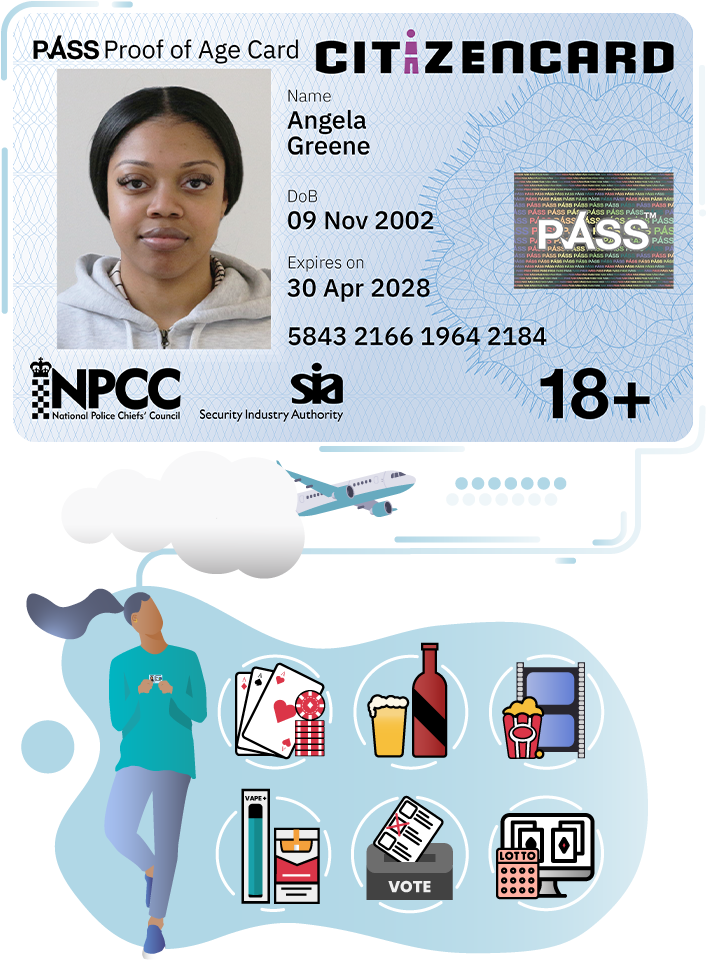
Safe for everyday use identity card
We offer the UK public a cheap, safe for everyday use ID card, which is not costly to replace and cannot be used for illegal activities such as ID theft. With a CitizenCard you can prove who you are whenever you need and access our online discounts.
Requirements
Simplesavings, card features.
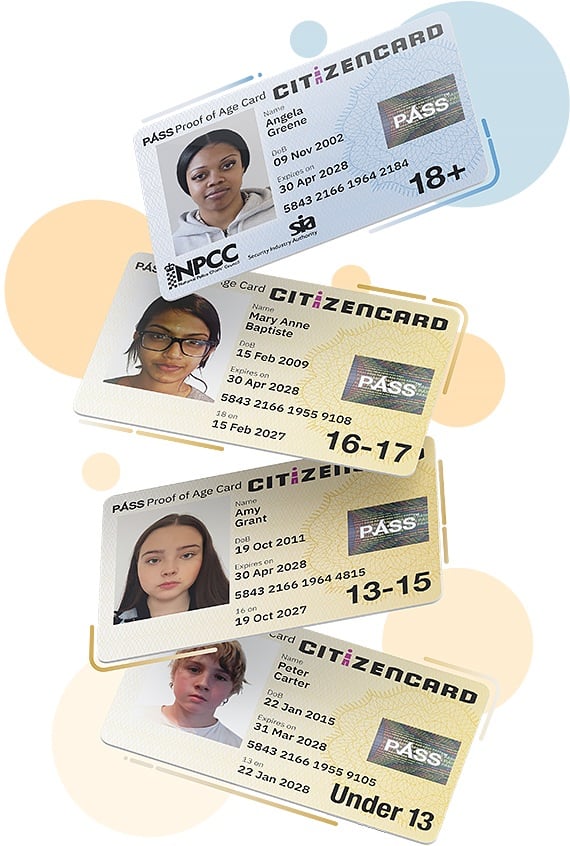
Proof of age card variants
All CitizenCards display the PASS hologram endorsed by the Home Office. In addition, our 18+ photo ID card displays the logos of the Police and Security Industry Authority that give their full support to the scheme. Retailers, pubs, bars and nightclubs are advised by these organisations to accept all identity cards with the official PASS logo and hologram.
CitizenCards are available for any UK resident and are issued in 3 age categories:
The age categories make it easy for retailers and door staff to immediately know if a person is of age to buy age-restricted items or enter the premises.
GET YOUR ID CARD
CitizenCard is well-established as the UK's most widely-recognised photo identification card. Whether you are visiting a premises, going shopping or accessing services like transport, CitizenCard is there to help you prove your age and identity.
Affordable Pricing
Get a cheap, safe for everyday use photo ID. A standard application costs £18 and takes up to 21 days. Need your card urgently? Use the fast track process which costs £35 and takes 1-2 working days.
Simple Online Process
Our online application process doesn't require a printer, photos from a photo booth or posting anything to us. Once you create your application, we will guide you through getting your identity verified.
ID Card + Free Digital ID
We've partnered with Yoti to offer an ID card plus free digital ID to anyone in the UK. A Yoti CitizenCard is the perfect ID solution making it safer for people to prove their identity online and in person.
Validate our ID cards online
We offer retailers and other organisations in the UK the tools necessary to check that any card issued by CitizenCard is valid, provided the cardholder presents their card to be verified.
Scan a QR code to quickly verify a cardholder's age and likeness or enter card details to verify a card you are shown as genuine.
Verify Card Service
Get the free Verify app and take a photo of any proof of age and photo ID card issued by us to check if the card you are shown is valid and can be trusted.
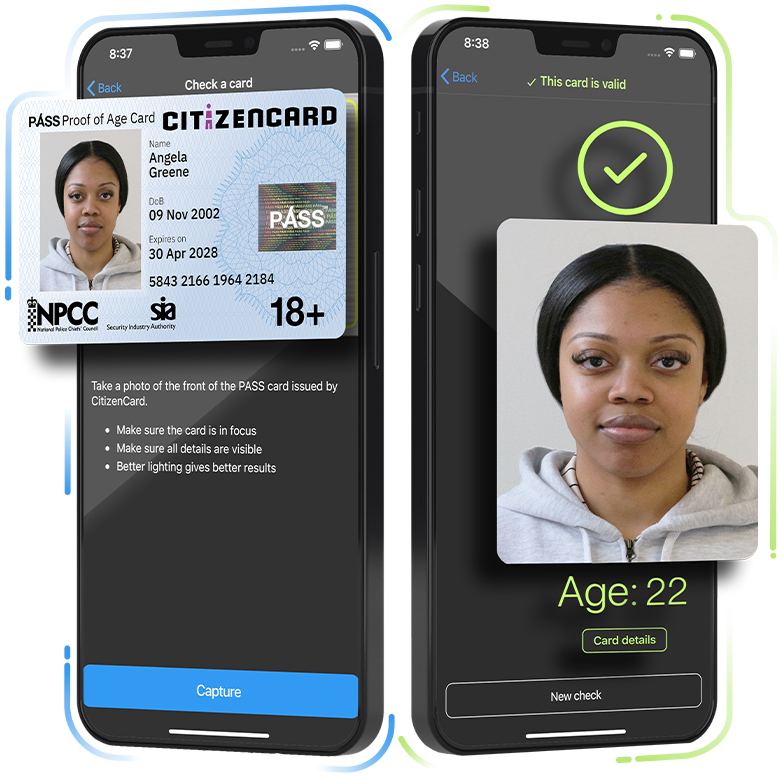
Download the Verify app for free!
Validate our cards quickly

Contact our Support Team
Have any questions or queries? Need help with your application? Don't hesitate to get in touch.

UK's largest photo ID card provider
CitizenCard is a non-profit governed by representatives from the National Lottery operator Allwyn, the Co-op, Ladbrokes & Coral owner Entain and the TMA. Supported by a network of respected manufacturers and retailers, we are the longest-established and the largest photo ID card provider in the UK with over 2.5 million cards issued.
We are audited by members of the Age Check Certification Scheme on behalf of PASS to ensure that the highest standards of UK data protection, privacy and security are upheld and rigorous identity verification is carried out.
CitizenCard is proud to have signed the TransFriendly pledge. In short, we are committed to treating transgender and non-binary customers with dignity and respect.
Our partners include:

Not-for-profit organisation
CitizenCard is the only non-profit UK-wide issuer of police-approved proof of age & ID cards.
We work closely with charities, schools and Local Authorities across the country, helping the most vulnerable in society by issuing free identity cards. We also offer guidance to retailers with regards to the sale of age-restricted items.
Helping students
Aiding charities
Assisting Local Authorities
'No ID, No Sale!' campaign
Why do you need an ID?
The information provided on an identification card provides the proof for licensees, retailers and officials to confirm your unique identity.
Find out how CitizenCard helped a few young people access services and venues that require proof of age and ID.
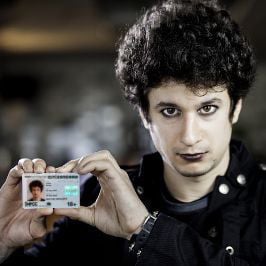
Pubs & Bars
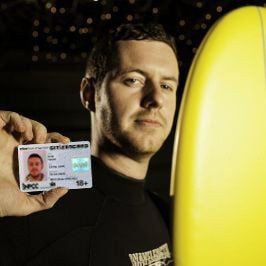
Domestic flights

Neville, 23
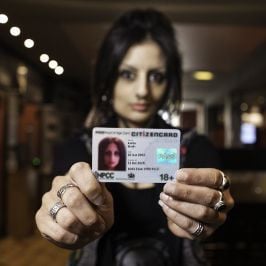
TRUSTED ID SINCE 1999
The PASS hologram on each CitizenCard is endorsed by the Home Office, Police, SIA and retailers.

Quick Links
Copyright © 2024 CitizenCard

CitizenCard website uses cookies. By continuing to use it, you agree to their use.
Read our Privacy Policy.

Home » News » Can I Travel from UK to Spain with ID Card?
Can I Travel from UK to Spain with ID Card?
8 Minutes
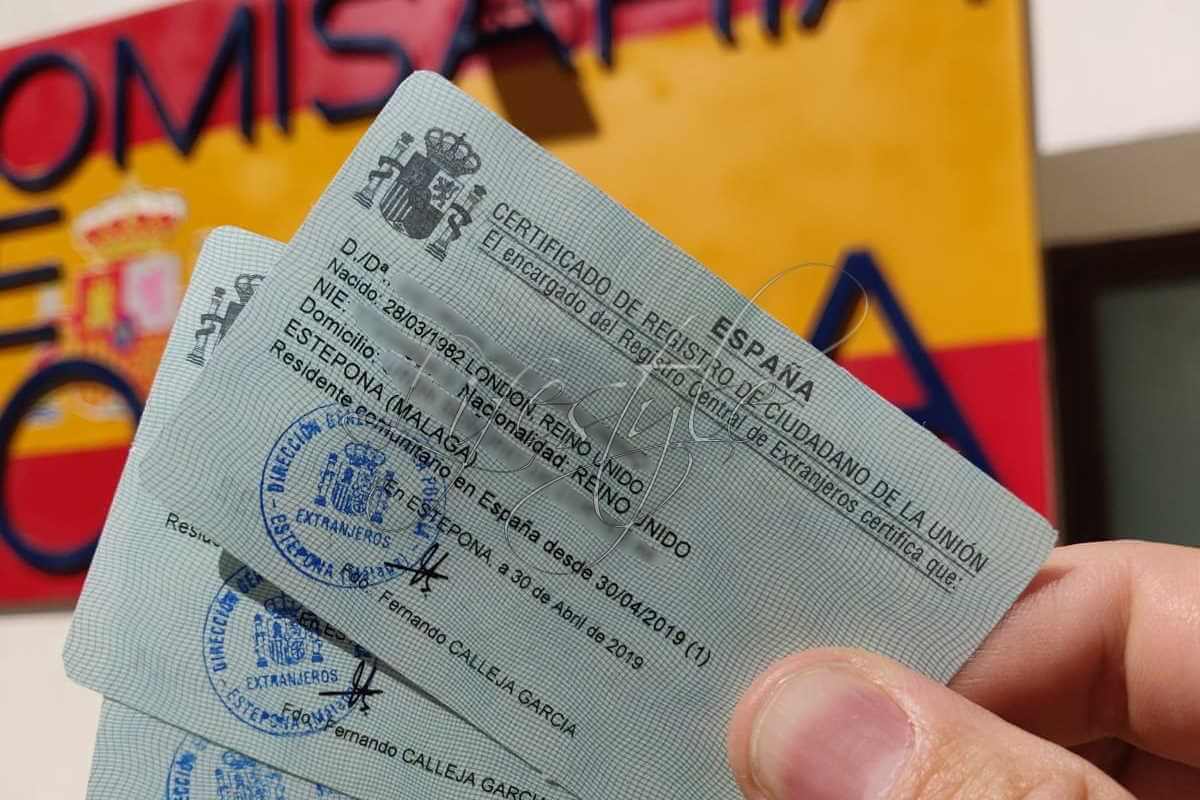
Can I Travel from UK to Spain with ID Card? This is a question that gets asked a lot. This article aims to provide comprehensive information on the current travel requirements for UK citizens traveling to Spain. The article highlights the importance of being aware of these requirements to avoid any inconvenience or additional costs during travel. With the ongoing COVID-19 pandemic, travel restrictions and regulations have been continuously changing, making it challenging to keep up with the latest updates.
In short, this article provides a detailed overview of the current travel regulations and requirements for UK citizens traveling to Spain, including Spain entry requirements Covid documentation, Spain passport requirements, health checks, unvaccinated travel to Spain from UK and quarantine measures. By the end of this article, readers will have a clear understanding of the necessary steps they need to take to ensure a hassle-free and enjoyable trip to Spain.
What are the ID Card Requirements for UK Citizens Travelling to Spain?
An ID card, also known as a national identity card, is an official document issued by the government that identifies an individual as a citizen or legal resident of a particular country. In the case of UK citizens traveling to Spain, it is important to understand the ID card requirements to ensure a smooth entry into the country. Can I Travel from UK to Spain with ID Card? Let’s find out together.
The Spanish authorities accept national identity cards issued by EU countries, including the UK, as a valid form of identification for entry into Spain. UK citizens who possess a valid passport can also use this as a form of identification when entering Spain.
However, it is important to note that if a UK citizen wishes to reside in Spain for longer than three months, they may need to obtain a Spanish ID card, known as a Tarjeta de Identidad de Extranjero (TIE). This is a biometric card that includes personal information, a photograph, and fingerprints.
How to Obtain TIE
To obtain a TIE, UK citizens will need to provide certain documents, such as a valid passport, proof of address, and proof of income or financial support. The process for obtaining a TIE may vary depending on the region and can take several weeks, so it is important to plan accordingly.
It is also worth noting that UK citizens who were resident in Spain before December 31st, 2020, are eligible to exchange their existing residency document for a TIE. This process must be completed before June 30th, 2021, and more information can be found on the Spanish government’s website.
In summary, UK citizens traveling to Spain can use their national identity card or passport as a form of identification. However, those planning to reside in Spain for longer than three months may need to obtain a TIE. It is important to research the specific requirements and process for obtaining a TIE, and to allow plenty of time to complete the application process before traveling.
Frequently asked questions:
Can I travel from UK to Spain with Spanish ID card? – UK citizens can travel to Spain with a Spanish ID card, but it is recommended to check the latest information and requirements before departure.
Can I travel with settled status? – Yes, UK citizens with settled status can travel to Spain, but they may need additional documents for entry.
Do you need 6 months on your passport to travel to Spain? – Yes, UK citizens traveling to Spain need to have a passport with at least six months’ validity remaining.
Can EU family member travel to UK without visa? – You can travel to the UK as a tourist without needing a visa for short trips or holidays if you are an EU/EEA or Swiss citizen.
Can I travel to Europe with ID card? – Travelers must have a valid passport and a valid ID0_ to travel to the EU. You should always have at least one of these documents with you at all times as internal border checks can be conducted for national security or public order reasons.
For more information on the ID card requirements for UK citizens traveling to Spain, refer to the UK government’s website and the Spanish government’s website .
What are the Alternatives to an ID Card for UK Citizens Travelling to Spain?
UK citizens traveling to Spain may use other documents as valid identification. These include driving licenses, residence permits and health insurance cards; however each document has its own advantages and drawbacks so it is essential that you consider which one best meets your travel needs.
A driving license issued in the UK can is usable as identification when entering Spain. However it’s important to remember that you cannot use it to enter the country if you are travelling by air. Furthermore, some activities such as opening a bank account and getting a mobile phone contract may not accept it as valid identification.
Before visiting Spain, there are some other travel regulations to take into consideration as well. Approved by the European Union in 2018, The European Travel and Information Authorization System ETIAS intends to pre-screen visa-exempt “Third Country” Nationals prior traveling to the EU. It will be mandatory for every non-EU national who don’t need visa to travel to Europe next year.
A residence permit, also known as a Certificado de Empadronamiento, is issued by the Spanish government and serves to prove residency in Spain. This document is necessary for many activities such as opening a bank account or signing up for healthcare. Unfortunately, obtaining a residence permit can be a lengthy process and may not even be necessary during short-term travel.
Health Insurance Card
Finally, a health insurance card issued by the UK government can serve as identification when traveling to Spain. This card is an access to emergency medical treatment in case an illness or injury arises while person is abroad. However, this does not replace travel insurance which is a recommendation for all travelers.
In conclusion, UK citizens have several alternative documents they can use as identification when traveling to Spain: a driving license, residence permit and health insurance card. Each document has its own advantages, so it’s essential that you research which one best meets your travel requirements.
For further details on alternative documents available to UK citizens traveling to Spain, please consult both the UK government’s website and the Spanish government’s website. UK Passport requirements for Spain after Brexit – UK citizens traveling to Spain after Brexit need to have at least six months’ validity remaining on their passport.
How to Prepare for Travel to Spain with an ID Card
Can I travel to Spain with ID card? Proper preparation is essential for UK citizens traveling to Spain with an ID card. By taking the necessary steps before departure, travelers can avoid potential problems or delays upon arrival in Spain.
Before leaving the UK, it is important to ensure that your ID card is up to date and valid for travel. You should also check the expiration date of your passport, as some airlines may require a valid passport as a form of identification. It is also recommended to research and familiarize yourself with the current travel restrictions and regulations in Spain, including any COVID-19 related requirements .
Upon arrival in Spain, travelers should expect to present their ID card or passport for inspection by border control. Depending on the circumstances, travelers may need to undergo a health check or provide proof of vaccination or negative COVID-19 test results.
In case of an emergency or problems with documentation, travelers should contact the nearest British embassy or consulate in Spain for assistance. It is also important to have a copy of important documents, such as your passport or ID card. You should store them securely so that you won’t lose them.
Can I Travel from UK to Spain with ID Card? In summary, proper preparation before travel is crucial for UK citizens traveling to Spain with an ID card. This includes ensuring that your ID card is up to date and valid for travel, familiarizing yourself with travel restrictions and regulations, and having a plan in case of emergency or problems with documentation.
As mentioned above, travelers who want to visit Spain next year will need to have ETIAS visa as well. According to ETIAS requirements , it will be mandatory for every non-EU national who enjoys visa-free travel with the European Union once. Your submitted documents, including the ETIAS application and biometric passport, will be cross-checked and verified with the existing databases to ensure that you don’t pose a threat for the union.
For more information on how to prepare for travel to Spain with an ID card, refer to the UK government’s website and the Spanish government’s website.
In conclusion, this article has discussed the travel requirements for UK citizens traveling to Spain, including the use of ID cards and alternative documents for identification. Proper preparation before travel is crucial to avoid potential problems or delays upon arrival in Spain.
Can I Travel from UK to Spain with ID Card? Hopefully this article answered this question. It is important to understand the specific requirements and regulations in place, and to have a plan in case of emergency or problems with documentation. Travelers should always check the latest information and guidance provided by the UK and Spanish governments. Overall, understanding the travel requirements is essential for a smooth and hassle-free trip to Spain.
10 Minutes
9 Minutes
11 Minutes
Get Notified!
Sign up to get notified as soon as ETIAS becomes mandatory for traveling to Europe.
UNITED STATES (USA) AFGHANISTAN (AFG) ALAND ISLANDS (ALA) ALBANIA (ALB) ALGERIA (DZA) AMERICAN SAMOA (ASM) ANDORRA (AND) ANGOLA (AGO) ANGUILLA (AIA) ANTARCTICA (ATA) ANTIGUA AND BARBUDA (ATG) ARGENTINA (ARG) ARMENIA (ARM) ARUBA (ABW) AUSTRALIA (AUS) AUSTRIA (AUT) AZERBAIJAN (AZE) BAHAMAS (BHS) BAHRAIN (BHR) BANGLADESH (BGD) BARBADOS (BRB) BELARUS (BLR) BELGIUM (BEL) BELIZE (BLZ) BENIN (BEN) BERMUDA (BMU) BHUTAN (BTN) BOLIVIA (BOL) BONAIRE, SINT EUSTATIUS AND SABA (BES) BOSNIA AND HERZEGOVINA (BIH) BOTSWANA (BWA) BOUVET ISLAND (BVT) BRAZIL (BRA) BRITISH INDIAN OCEAN TERRITORY (IOT) BRUNEI (BRN) BULGARIA (BGR) BURKINA FASO (BFA) BURMA (BUR) BURUNDI (BDI) CAMBODIA (KHM) CAMEROON (CMR) CANADA (CAN) CANTON AND ENDERBURY ISLANDS (CTE) CAPE VERDE (CPV) CAYMAN ISLANDS (CYM) CENTRAL AFRICAN REPUBLIC (CAF) CHAD (TCD) CHILE (CHL) CHINA (CHN) CHRISTMAS ISLAND (CXR) COCOS (KEELING) ISLANDS (CCK) COLOMBIA (COL) COMOROS (COM) CONGO, DEMOCRATIC REPUBLIC OF (COD) CONGO, REPUBLIC OF (COG) COOK ISLANDS (COK) COSTA RICA (CRI) COTE D'IVOIRE (CIV) CROATIA (HRV) CUBA (CUB) CURACAO (CUW) CYPRUS (CYP) CZECH REPUBLIC (CZE) DEMOCRATIC YEMEN (YMD) DENMARK (DNK) DJIBOUTI (DJI) DOMINICA (DMA) DOMINICAN REPUBLIC (DOM) DRONNING MAUD LAND (DML) EAST TIMOR (TMP) ECUADOR (ECU) EGYPT (EGY) EL SALVADOR (SLV) EQUATORIAL GUINEA (GNQ) ERITREA (ERI) ESTONIA (EST) ETHIOPIA (ETH) FALKLAND ISLANDS (FLK) FAROE ISLANDS (FRO) FIJI (FJI) FINLAND (FIN) FRANCE (FRA) FRANCE METROPOLITAN (FXX) FRENCH GUIANA (GUF) FRENCH POLYNESIA (PYF) FRENCH SOUTHERN TERRITORIES (ATF) GABON (GAB) GAMBIA (GMB) GEORGIA (GEO) GERMANY (DEU) GHANA (GHA) GIBRALTAR (GIB) GREECE (GRC) GREENLAND (GRL) GRENADA (GRD) GUADELOUPE (GLP) GUAM (GUM) GUATEMALA (GTM) GUERNSEY (GGY) GUINEA (GIN) GUINEA-BISSAU (GNB) GUYANA (GUY) HAITI (HTI) HEARD AND MC DONALD ISLANDS (HMD) HONDURAS (HND) HONG KONG (HKG) HUNGARY (HUN) ICELAND (ISL) INDIA (IND) INDONESIA (IDN) IRAN (IRN) IRAQ (IRQ) IRELAND (IRL) ISLE OF MAN (IMN) ISRAEL (ISR) ITALY (ITA) JAMAICA (JAM) JAPAN (JPN) JERSEY (JEY) JOHNSTON ISLAND (JTN) JORDAN (JOR) KAZAKHSTAN (KAZ) KENYA (KEN) KIRIBATI (KIR) KOSOVO (KVV) KUWAIT (KWT) KYRGYZSTAN (KGZ) LAOS (LAO) LATVIA (LVA) LEBANON (LBN) LESOTHO (LSO) LIBERIA (LBR) LIBYA (LBY) LIECHTENSTEIN (LIE) LITHUANIA (LTU) LUXEMBOURG (LUX) MACAU (MAC) MACEDONIA (MKD) MADAGASCAR (MDG) MALAWI (MWI) MALAYSIA (MYS) MALDIVES (MDV) MALI (MLI) MALTA (MLT) MARSHALL ISLANDS (MHL) MARTINIQUE (MTQ) MAURITANIA (MRT) MAURITIUS (MUS) MAYOTTE (MYT) MEXICO (MEX) MICRONESIA - FEDERATED STATES OF (FSM) MIDWAY ISLANDS (MID) MOLDOVA (MDA) MONACO (MCO) MONGOLIA (MNG) MONTENEGRO (MNE) MONTSERRAT (MSR) MOROCCO (MAR) MOZAMBIQUE (MOZ) MYANMAR (MMR) NAMIBIA (NAM) NAURU (NRU) NEPAL (NPL) NETHERLANDS (NLD) NETHERLANDS ANTILLES (ANT) NEUTRAL ZONE (NTZ) NEW CALEDONIA (NCL) NEW ZEALAND (NZL) NICARAGUA (NIC) NIGER (NER) NIGERIA (NGA) NIUE (NIU) NORFOLK ISLAND (NFK) NORTH KOREA (PRK) NORTHERN MARIANA ISLANDS (MNP) NORWAY (NOR) OMAN (OMN) PAKISTAN (PAK) PALAU (PLW) PALESTINIAN TERRITORIES (PSE) PANAMA (PAN) PAPUA NEW GUINEA (PNG) PARAGUAY (PRY) PERU (PER) PHILIPPINES (PHL) PITCAIRN ISLANDS (PCN) POLAND (POL) PORTUGAL (PRT) PUERTO RICO (PRI) QATAR (QAT) REUNION (REU) ROMANIA (ROM) RUSSIA (RUS) RWANDA (RWA) SAINT BARTHELEMY (BLM) SAINT KITTS AND NEVIS (KNA) SAINT LUCIA (LCA) SAINT MARTIN (FRENCH PART) (MAF) SAINT VINCENT AND THE GRENADINES (VCT) SAMOA (WSM) SAN MARINO (SMR) SAO TOME AND PRINCIPE (STP) SAUDI ARABIA (SAU) SENEGAL (SEN) SERBIA (SRB) SERBIA AND MONTENEGRO (SCG) SEYCHELLES (SYC) SIERRA LEONE (SLE) SINGAPORE (SGP) SINT MAARTEN (DUTCH PART) (SXM) SLOVAKIA (SVK) SLOVENIA (SVN) SOLOMON ISLANDS (SLB) SOMALIA (SOM) SOUTH AFRICA (ZAF) SOUTH GEORGIA AND THE SOUTH SANDWICH ISLANDS (SGS) SOUTH KOREA (KOR) SOUTH SUDAN (SSD) SPAIN (ESP) SRI LANKA (LKA) ST. HELENA (SHN) ST. PIERRE AND MIQUELON (SPM) SUDAN (SDN) SURINAME (SUR) SVALBARD AND JAN MAYEN ISLANDS (SJM) SWAZILAND (SWZ) SWEDEN (SWE) SWITZERLAND (CHE) SYRIA (SYR) TAIWAN (TWN) TAJIKISTAN (TJK) TANZANIA (TZA) THAILAND (THA) TIMOR-LESTE (TLS) TOGO (TGO) TOKELAU (TKL) TONGA (TON) TRINIDAD AND TOBAGO (TTO) TUNISIA (TUN) TURKEY (TUR) TURKMENISTAN (TKM) TURKS AND CAICOS ISLANDS (TCA) TUVALU (TUV) UGANDA (UGA) UKRAINE (UKR) UNITED ARAB EMIRATES (ARE) UNITED KINGDOM (GBR) UNITED STATES MINOR OUTLYING ISLANDS (UMI) URUGUAY (URY) UZBEKISTAN (UZB) VANUATU (VUT) VATICAN CITY STATE (HOLY SEE) (VAT) VENEZUELA (VEN) VIETNAM (VNM) VIRGIN ISLANDS (BRITISH) (VGB) VIRGIN ISLANDS (U.S.) (VIR) WAKE ISLAND (WAK) WALLIS AND FUTUNA ISLANDS (WLF) WESTERN SAHARA (ESH) YEMEN (YEM) ZAIRE (ZAR) ZAMBIA (ZMB) ZIMBABWE (ZWE)
Your information will not be shared with anyone. Read our Privacy Policy for more information.
Cookies on GOV.UK
We use some essential cookies to make this website work.
We’d like to set additional cookies to understand how you use GOV.UK, remember your settings and improve government services.
We also use cookies set by other sites to help us deliver content from their services.
You have accepted additional cookies. You can change your cookie settings at any time.
You have rejected additional cookies. You can change your cookie settings at any time.
- Entering and staying in the UK
Travelling to the UK from Ireland, Isle of Man, Guernsey or Jersey
Information for people travelling to the UK from Ireland, Jersey, Guernsey or the Isle of Man, and information for people passing through the UK on the way to Ireland, Jersey, Guernsey or the Isle of Man.
The Common Travel Area
The Common Travel Area (CTA) is made up of the UK, Ireland and the Crown Dependencies (Jersey, Guernsey and the Isle of Man).
For the UK, the CTA arrangements means that you won’t always go through UK immigration control when travelling to the UK from somewhere else in the CTA. This is different to when you come to the UK from outside of the CTA.
You will never go through immigration control at the land border between Ireland and Northern Ireland.
British and Irish citizens
Under the CTA arrangements , Irish citizens in the UK and British citizens in Ireland have the right to live, work, study, and access healthcare, social security and public services in each other’s countries without having to apply for permission.
Read more about what the CTA means for Irish citizens .
You don’t need to show your passport to a Border Force officer when travelling from Ireland to Great Britain. However, you may be asked to show a document that confirms your identity and nationality.
This could include:
- a valid passport or passport card (if you’re Irish)
- a copy of your passport or passport card with your identity and nationality clearly visible
- an expired passport or passport card, which Border Force are satisfied was issued to you originally
- evidence of having obtained British or Irish citizenship
This list is not exhaustive and other documents including providing more than one may be accepted. These are considered on a case by case basis by Border Force.
You will not pass through any immigration control when you enter the UK from Ireland across the land border, so you don’t need any documents to enter the UK on that route.
If you’re not a British or Irish citizen
There are different rules if you enter the UK from the CTA than if you enter the UK from a place outside the CTA. Usually, you don’t need to get permission to enter the UK if you are arriving from the CTA for a visit of up to 6 months.
However, there are exceptions to this. Some people need permission to enter the UK for a short visit wherever in the CTA they travel from. Other people only need permission if they’re travelling from Ireland.
If you enter the UK illegally from another part of the CTA, you may be removed from the UK.
People who need permission to enter the UK from anywhere within the CTA
For most people, there are different arrangements in place depending on whether you travel to the UK from Ireland or the Crown Dependencies .
You need to seek permission to enter the UK from anywhere in the CTA if:
- you are subject to a deportation order
- your exclusion has been deemed conducive to the public good
- you have previously been refused permission to enter the UK and haven’t, since the time you were refused permission, been granted permission to enter or remain in the UK or any of the Crown Dependencies
Travelling from Ireland to the UK
If you’re from an eea country or switzerland.
However, you may be asked to show your passport (which should be valid for the whole of your stay) or identity card to enter Great Britain when travelling from Ireland if you are encountered by Border Force.
You cannot use an EEA or Swiss national identity card to enter the UK, and can only use a valid passport, unless you:
- have settled or pre-settled status under the EU Settlement Scheme , or Jersey, Guernsey or the Isle of Man’s settlement schemes
- have an EU Settlement Scheme family permit, or the equivalent from Jersey, Guernsey or the Isle of Man
- have a Frontier Worker permit
- are an S2 Healthcare Visitor
- are a Swiss national and have a Service Provider from Switzerland visa
Irish citizens can use a passport card.
If you’re waiting for a decision on your application for settled or pre-settled status
You can still use your EEA or Swiss national identity card to enter the UK if all of the following are true:
- you’ve applied for settled or pre-settled status under the EU Settlement Scheme, or Jersey, Guernsey or the Isle of Man’s settlement schemes
- you’ve been issued with confirmation your application is valid
- you’re not applying as a joining family member
If you’re not from an EEA country or Switzerland
However, you may be asked by Border Force to show your passport, which should be valid for the whole of your stay, to enter Great Britain.
Permission to enter requirements
If you have permission to enter or remain in the UK (for example if you have a UK visa) you do not need further permission to enter the UK from Ireland.
You only need to get permission to enter the UK when arriving from Ireland if:
- you arrived in Ireland from outside of the CTA and did not obtain immigration permission to enter Ireland
- you’re a visa national who doesn’t have a valid UK visa, or a visa granted under the British-Irish Visa Scheme (BIVS)
- you entered Ireland unlawfully from outside the CTA
- you entered the UK or the Crown Dependencies unlawfully and went directly from there to Ireland
- your permission to enter or stay expired before you left the UK and since then you haven’t been given permission to enter or stay in the UK or any of the Crown Dependencies
- you are the subject of an international travel ban
- you were refused admission or subject to a removal decision under specific regulations - unless you were later given permission to enter or stay
In these situations, you must either apply for:
- a visa before you travel
- permission to enter from a Border Force (immigration) Officer at the UK border
You may not be able to get permission to enter the UK from a Border Force Officer if you enter the UK from the CTA. This is because there are usually no immigration controls on these journeys, and none on the land border between Ireland and Northern Ireland.
For more information on who needs permission to enter the UK from Ireland, see the guidance on arriving in the UK from within the CTA .
Use the check if you need a UK visa tool to find out if you need a visa and what type.
Visas issued by Ireland are not acceptable for travel to the UK except for visas issued under the British Irish Visa Scheme (BIVS) .
If you don’t need permission to enter the UK from Ireland
Some people automatically have permission to enter the UK when they arrive from Ireland. This permission is called ‘deemed leave’. You don’t need to apply for it. You won’t get a stamp in your passport showing deemed leave because you won’t necessarily meet a Border Force officer when travelling from Ireland to the UK.
You can enter on the basis of deemed leave when you either:
- enter Ireland from a country outside the CTA, and then travel on to the UK
- were in the UK with permission to stay for a limited time, went directly to Ireland and while you were in Ireland your permission expired, and you then came directly back to the UK
The length of time you can stay in the UK and the things you can do here on the basis of deemed leave are different depending on why you are entering the UK. If you don’t need to apply to enter the UK from Ireland, you can enter and stay in the UK on Article 4 deemed leave.
You can be in the UK for up to 6 months on your first visit from Ireland. This time starts from the date you entered the UK. You can prove the date you entered the UK by, for example, your ticket or boarding pass.
Your deemed leave ends when you leave the UK.
On following visits to the UK from Ireland, you can be in the UK for up to 2 months on the basis of deemed leave if you haven’t left the CTA since you were last in the UK.
You cannot do any paid or unpaid work if you’re in the UK on Article 4 deemed leave except for activities allowed under Appendix V: Visitor of the Immigration Rules .
If you want to come to the UK to do something that isn’t allowed under Article 4 deemed leave, you must apply for the relevant visa before you travel to the UK.
Use the check if you need a UK visa tool to find out which visa is right for what you want to do.
Other ways for non-visa nationals to enter the UK using deemed leave
You can also use deemed leave if you enter the UK from Ireland either:
- as an S2 healthcare visitor
- to do a permitted paid engagement
The rules of your deemed leave will be different depending on what you are coming to do.
Travelling to the UK for S2 healthcare treatment
S2 Healthcare Visitor arrangements apply to patients who applied before 11pm on 31 December 2020 to come to the UK for a course of planned healthcare treatment under the ‘S2 healthcare route’.
These arrangements also cover people who come with or join S2 Healthcare patients to support or care for them during their treatment.
See more information on S2 Healthcare Visitors including the documents you need .
If none of the exemptions apply to you and you enter the UK from Ireland with a valid S2 certificate you can enter and stay in the UK under Article 5 deemed leave. This is also true for anybody accompanying or joining you to provide care or support.
Under Article 5 deemed leave, you have permission to enter for 6 months, starting from the date you enter the UK from Ireland. You can prove this date, for example, with your travel ticket or boarding pass. This deemed leave ends when you leave the UK.
You cannot do any paid or unpaid work.
You can apply for permission to stay in the UK for another 6 months if treatment needs to continue. There’s no limit to the number of 6 month extensions you and your accompanying person can apply for, as long as you continue to meet the eligibility requirements.
If you go from the UK to Ireland and then back to the UK without having left the CTA, you’ll automatically be able to stay in the UK for up to 6 months if you still have a valid S2 healthcare certificate. This permission will start from the date you return to the UK.
Irish citizens in the UK automatically have rights to enter and stay in the UK and don’t need deemed leave for healthcare purposes (except in a rare circumstances).
If you’re a visa national you must hold a visa issued under the S2 Healthcare Visitor route in the Immigration Rules before you get to the UK, including from Ireland.
See more information on the S2 Healthcare Visitor route .
Travelling to the UK for permitted paid engagements
If you are coming to the UK for a permitted paid engagement from Ireland, you can stay in the UK on the basis of Article 6 deemed leave for up to one month.
Your deemed leave starts from the date you first enter the UK from Ireland. You can prove this date, for example, with your travel ticket or boarding pass. This deemed leave ends when you leave the UK.
On further visits to the UK you can only stay for up to 7 days on the basis of Article 6 deemed leave on each visit from Ireland, as long as you haven’t left the CTA in between visits to the UK.
If you want to use the longer deemed leave period given by Article 4 then you must first leave the CTA. You cannot switch between Article 4 and Article 6 deemed leave while still in the CTA.
You can do a different permitted paid engagement activity each time you visit the UK.
Your permitted paid engagement must:
- have been arranged before you travel to the UK
- be evidenced by a formal invitation
- relate to your area of expertise and occupation overseas
Travelling to the UK through Ireland under the Creative Worker visa concession
If you are travelling to the UK through Ireland under the Creative Worker visa concession you must apply for remote clearance at least 72 hours before you arrive in the UK.
Travelling between the Crown Dependencies and the UK
You don’t need a passport when travelling from the Crown Dependencies to the UK. However, you may need to show a Border Force officer document confirming your identity.
- a copy of your passport or passport card with your identity clearly visible
- a driving licence
- an armed forces identity card
This list is not exhaustive and other proof may be accepted. This will be considered on a case by case basis by Border Force.
You may also need to show that you have permission to enter the UK such as:
- a biometric residence permit
- proof of your digital status (or eVisa)
- a vignette in your passport
- confirmation of immigration permission from one of the Crown Dependencies
This list is not exhaustive and you may be able to confirm you have permission to enter the UK in another way. Your circumstances will be considered on a case by case basis by Border Force.
If you get permission to enter or stay in the UK, that permission and any conditions attached to it also apply in the Isle of Man, Guernsey and Jersey (the Crown Dependencies). The same is true if the Crown Dependencies give you permission to enter or stay and you then travel to the UK.
You only need one UK visa if you plan to travel directly to the UK or any of the Crown Dependencies, or stop in any one of those places on the way to another.
Submit and pay for visa applications for permission to enter the Crown Dependencies in the same way as for the UK.
Travelling through the UK on your way to another part of the CTA
Even if you only enter the UK as part of your journey to Ireland or the Crown Dependencies you must still follow the UK’s immigration laws while you’re in the UK .
You must follow the immigration laws of whichever part of the CTA that you are in at the time. This includes visa requirements, restrictions on employment and length of stay.
Travelling to Ireland from the UK
Check travel advice for Ireland .
Added link to advice on travel to Ireland.
Updated section on 'Travelling to the UK through Ireland under the Creative Worker visa concession' to reflect that this concession is no longer available to sporting workers.
Updated information on use of ID cards to enter the UK if you're an EU, EEA or Swiss citizen.
Updated information for Irish citizens travelling to the UK from Ireland or the Crown Dependencies.
First published.
Related content
Is this page useful.
- Yes this page is useful
- No this page is not useful
Help us improve GOV.UK
Don’t include personal or financial information like your National Insurance number or credit card details.
To help us improve GOV.UK, we’d like to know more about your visit today. We’ll send you a link to a feedback form. It will take only 2 minutes to fill in. Don’t worry we won’t send you spam or share your email address with anyone.

IMAGES
VIDEO
COMMENTS
You're from the EU, Switzerland, Norway, Iceland or Liechtenstein. You can enter the UK with one of the following identity documents: a passport. an Irish passport card. a national identity card ...
From today (Friday 1 October 2021), most EU, EEA and Swiss citizens will need a valid passport to enter the UK as the government stops accepting national identity (ID) cards as a travel document.
Overview. Your identity document (for example your passport or identity card) will be checked when you arrive at a UK port or airport to make sure you're allowed to come into the country. It ...
As part of the Government's ambition to build back a safer, fairer and more prosperous UK, there will be a phasing out of the use of National Identity (ID) cards as a valid travel document to enter the UK. This means that from 1 October 2021, most EU, EEA and Swiss nationals will need to use a valid passport to travel to the UK.
passport or a national ID card to enter the UK. For such citizens this is a right for life. The UK may, however, require that after 31 December 2025 national ID cards used for UK entry must have a biometric chip compliant with International Civil Aviation Organisation (entry must be (ICAO) standards). Therefore, those citizens who have:
Frequently asked questions about traveling with a national ID card as a beneficiary of the EU-UK Withdrawal Agreement
However, on 01 October 2021, the rules governing entry to the UK with an EU, EEA or Swiss national identity card will change. Up to and including Thursday 30 September 2021, all EU, EEA and Swiss citizens can use their national identity card to enter the UK. However, from Friday 01 October 2021, this will no longer be possible for most EU, EEA ...
Those with status under this category may also continue to use their Swiss national ID card for travel to the UK after 1 October 2021. Additionally, British nationals may continue to use a Gibraltar identity card when entering the UK. Irish citizens can also continue to use a passport card for travel to the UK beyond the 1st of October 2021.
The UK no longer applies EU rules on free movement, which allow EU nationals to travel freely with a valid passport or an identity card. As an EU national, the entry documents required when travelling to the UK will differ according to whether you have a residence status in the UK under the EU-UK Withdrawal Agreement (EU Settlement Scheme), or not.
When travellers enter England from a country not on the red list, they should be fully vaccinated, and will still have to: book and pay for a day 2 Covid-19 test - to be taken after arrival in England. complete a passenger locator form - any time in the 48 hours before they arrive in England. take a Covid-19 test on or before day two after ...
Airlines must allow European visitors to travel to UK on ID cards, says watchdog. Citizens of Schengen zone countries have a right to travel using ID cards, airlines have been reminded.
All European citizens who fall under the EU-UK Withdrawal Agreement can continue using a national identity card issued by any EU Member States to enter British territory; the European Commission has recalled European citizens and permanent residents. - Advertisement -. "National authorities or travel operators cannot restrict their right to ...
Updated information on use of ID cards to enter the UK if you're an EU, EEA or Swiss citizen. 2 September 2021 Updated information for Irish citizens travelling to the UK from Ireland or the Crown ...
In 2019, just under 10 million* people used an ID card rather than a passport to book a flight to enter the UK. This equates to around a third of all EEA and Swiss air passengers. The change from 1 October means an ID card will no longer be accepted for travel to the UK, unless the exemptions apply.
Start the online application process by using "Apply for your first ID card" button. 2. "Create Your Account" online (complete a registration form and activate your account) or "Log in" to your CitizenCard online account if you already have one. 3. Go to "Apply Online", use "Apply for a new CitizenCard" button, complete a new, online ...
For more information on travelling to the UK from 2021. Dutch nationals living in the UK by 31 December 2020. If you become a UK resident on or before 31 December 2020, you are covered by the withdrawal agreement. This means you can continue to use your ID card to travel between the Netherlands and the UK until at least the end of 2025.
From the 1st October 2021 the UK will no longer accept EU and Schengen National ID cards for travel to the UK and will require a passport to enter the UK. can still use their ID cards to travel to the UK at least until 31December 2025. They'll also be able to use them after that date, if the cards meet the security standards set by the ...
To provide extra proof of your status at border control, your national ID card should be linked to your immigration status online. From 2026, the British government is free to make biometric documents compulsory. Some airlines will only accept a passport (rather than a national ID card). Find out more: Visiting the UK after Brexit
CitizenCard is the only non-profit UK-wide issuer of police-approved proof of age & ID cards. We work closely with charities, schools and Local Authorities across the country, helping the most vulnerable in society by issuing free identity cards. We also offer guidance to retailers with regards to the sale of age-restricted items.
Physical immigration documents will be gradually phased out by 2025, as we transition to a fully digital border and immigration system for new and existing customers. This will deliver enhanced ...
There should be no reason to deny an EU citizen boarding to an EU country (plus Georgia and probably a few others) on an EU ID card, however unless (pre-)settled status has been obtained, there may be issues on the return to the UK. Posts: Assuming your MIL's passport and ID card are UK-issued, there's info in the following link which may be ...
Let's find out together. The Spanish authorities accept national identity cards issued by EU countries, including the UK, as a valid form of identification for entry into Spain. UK citizens who possess a valid passport can also use this as a form of identification when entering Spain. However, it is important to note that if a UK citizen ...
American Airlines - Airline tickets and low fares at aa.com
Identity cards. Identity cards were scrapped in 2011 - they're no longer valid and you can't use them as proof of identify. You don't have to return your identity card. You should destroy it ...
KEY POINTS. 56% of Americans with a credit card have a cash back card. You can earn free airline tickets with a travel rewards card. Gas and grocery cards may be a good choice for big families ...
Updated information on use of ID cards to enter the UK if you're an EU, EEA or Swiss citizen. 2 September 2021 Updated information for Irish citizens travelling to the UK from Ireland or the Crown ...